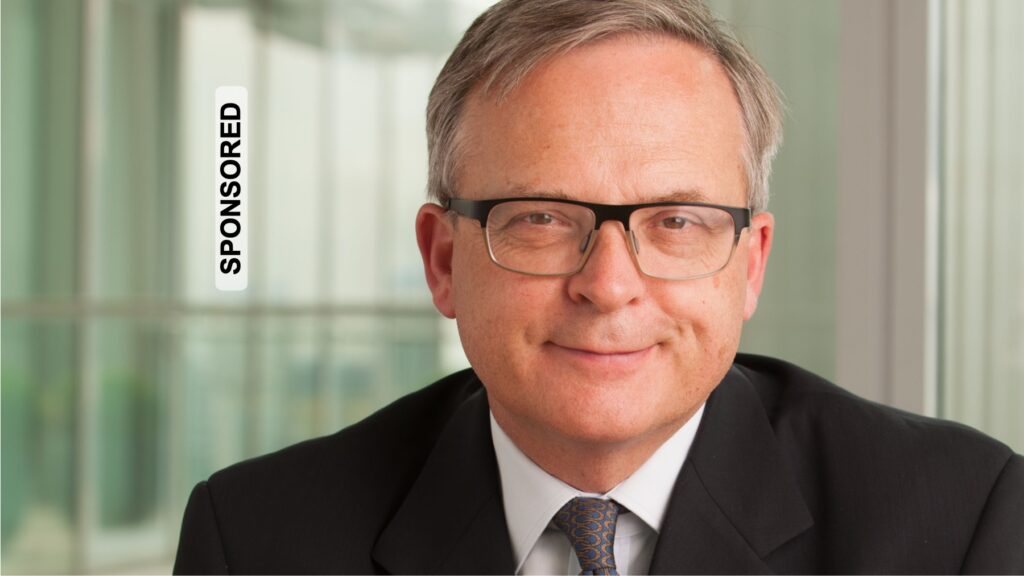The regulatory response to the financial crisis around 2008 was necessary – but with trust restored, now is the time for banks and other market participants to drive their own post-trade agenda and focus on efficiency. Meet BNP Paribas’ Alan Cameron for a look at where to focus next.

“Yes, the regulatory path was the right way to go at the time. And yes, it has been done reasonably successfully,” says Alan Cameron, Head of Financial Institutions & Corporates Advisory at BNP Paribas Securities Services.
“But now we should recognise that we have come to the end of the period when our whole world has been led by the regulatory essentials – when we had to concentrate on getting the regulations right, putting them in place and fine tuning the resulting processes. Now, instead, there is an opportunity for the post-trade participants to set their own agenda for the years ahead.”
Many changes needed
As we shift focus from regulations and market robustness, more towards efficiency, many subtopics call for our attention. Operational consolidation and scale is one, increasing flexibility to select various fintech suppliers is another; both are changing the industry structure. Pressure to shorten the standard settlement cycle to “T+1” (with settlement on the business day after the trade) is yet another trend … and the growing number of successful pilots using distributed ledger technology, DLT. The list could be made much longer.
Some efficiency investments will take place within companies, and most managers are generally aware of their internal needs. But Alan Cameron points to an area which seems to have suffered particularly through the years of regulatory focus: efficiencies at market level, through new ways of doing things across the landscape.
There is not an entirely blank sheet of paper on the wall, but there is certainly space to put ideas up there now.
“Sometimes we can work together, as an industry, to everybody’s benefit. This is because we can do things quicker if we don’t wait for everything to be regulatory-driven, and because I think we need to improve in areas where regulators may not be that interested. There is not an entirely blank sheet of paper on the wall, but there is certainly space to put ideas up there now,” says Alan Cameron.
Top priority: consolidate
Among all the mentioned aspects, the need for scale economies may be the strongest driver of change right now. These are affecting all post-trade activities whether at asset managers, intermediaries, custodians, or market infrastructures like clearing-houses and CSDs. The need for scale is there, regardless of whether activities are carried out at the back office of a trading firm or at a service provider.
“A lot of what we do in the post-trade world has very high fixed costs. We need to spread these over the biggest cost base that we can. This will drive consolidation, and probably some outsourcing as well. And most participants will be reappraising what they do in-house and seeing what can be done through the new fintechs that come along. So, we all have to look at our business models, at potential consolidation, and at scale. None of these things are disappearing.”
The third wave: connection
So, if regulated robustness is what we have focused on for 10–15 years, and we now dive head-first into a tech-driven efficiency quest … what could then come after that? Alan Cameron has a clear idea, and he recommends post-trade participants start thinking about it already today; he sums it up as “connection”.

“I think we are at the beginning of what will be a very large change. We will be more involved in providing investors with reporting and information about how the companies that they are investing in are performing and what they are doing – rather than just informing the investors about what assets they hold,” says Alan Cameron.
“Very importantly, there’s going to be a lot more focus on ensuring that banks and custodians help shareholders have effective stewardship of the companies that they own, through voting at meetings and making shareholder capitalism effective. While this is not every investor’s main focus yet, we can see that this is already increasing. For myself, I think I’m more aware of this now than maybe I was two or three years ago. Both for custodians and depositories, this role will be increasingly significant.”
At BNP Paribas Securities Services, we will always be happy to discuss your route forward and how our services could support your journey. Never hesitate to contact us!

Johanna Sigfridsson, Head of Relationship Management, Nordic Region. Email
Adam Persson, Head of Business Development, Nordic Region. Email
On 29 March, meet Alan Cameron at PostTrade 360° Stockholm 2022, where he will take part in a panel on the reshaping of Sweden’s securities settlement.











